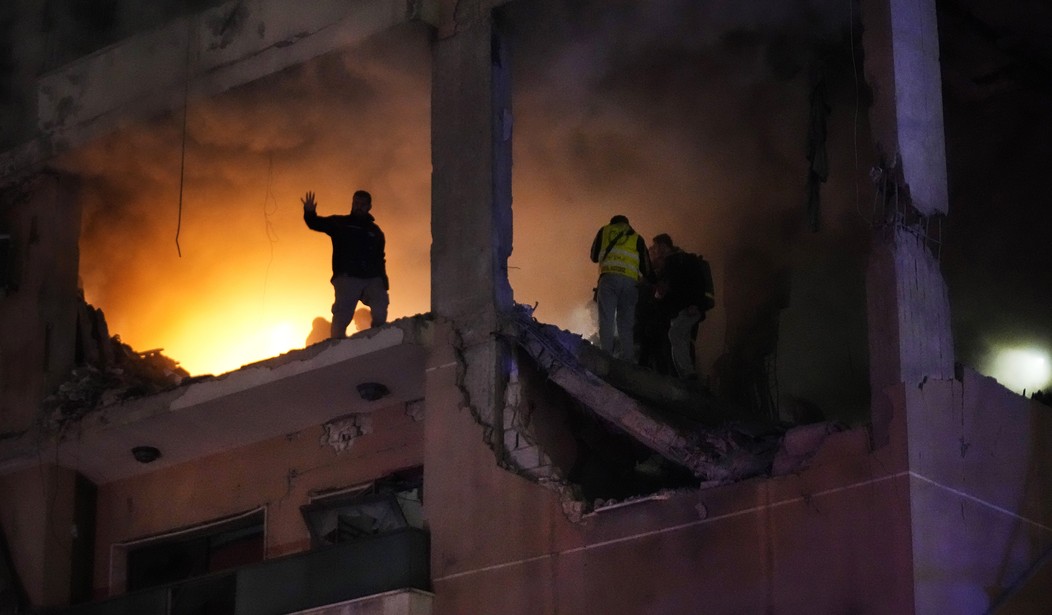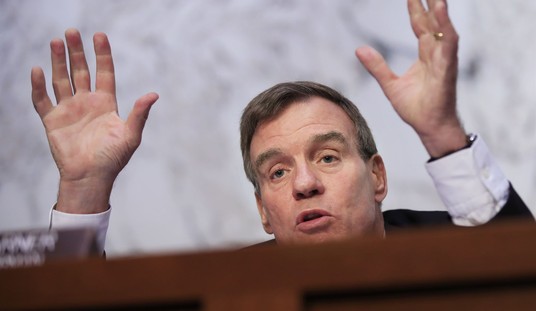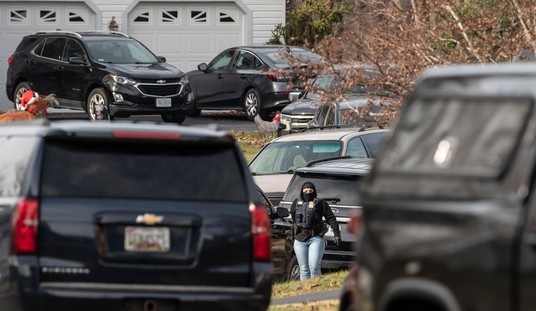Israel has temporarily shifted the focus of its air campaign in Lebanon and Syria from plinking jihadists cowering in bunkers to wiping out Hezbollah's infrastructure. Israeli strike fighters hit eleven locations associated with Hezbollah's financial operation after giving people in the target areas 20 minutes' notice to evacuate.
The Israeli military said it targeted money held by Al-Qard Al-Hassan Association (AQAH). It offers financial services to civilians in areas where Hezbollah has strong support, but Israel and the US accuse it of being a cover for the Iran-backed group to fund its activities.
There was no immediate comment from AQAH or Hezbollah.
...
It alleged that Hezbollah stored billions of dollars at branches of AQAH, and that it used the money to purchase weapons and pay members of its military wing.
“The purpose of these strikes is to target the ability of Hezbollah to function both during the war but also afterwards, to rebuild and to rearm the organisation on the day after, and [to target] the grip Hezbollah has on large parts of the Lebanese society,” an Israeli intelligence official told reporters.
...
AQAH is a key part of Hezbollah’s social services network. Before the Israeli strikes, it had more than 30 branches, often located on the ground floor of residential buildings.
This has created a cash shortage for an organization that needs a large cash flow to pay fighters, benefits to the families of slain fighters, and to carry out the social work that propelled Hezbollah into prominence in Lebanese politics. Because Hezbollah doesn't have access to international banking channels, it requires large quantities of cash to operate. Recall that when the Israelis bounced a JDAM off Hasan Nasrallah's turban, over $500 million in cash and gold was also lost. The hits on Hezbollah banks not only destroy the location where Hezbollah does business but also destroy all the currency stored at the bank.
“Hezbollah is facing a very serious financial problem. They are unable to pay rank-and-file members who have fled their homes and need to feed their families,” said Hilal Khashan, a Lebanese political science professor.
Furthermore, Lebanese finances have also been strained due to a loss of access to its banking system. According to the report, many of Lebanon’s wealthiest bankers, who may have facilitated Hezbollah’s money laundering activities, have fled the country, fearing Israeli reprisals.
“These Lebanese bankers, most of them billionaires, see the wind is blowing against Hezbollah, so they are not going to let it take millions of dollars out of their banks,” David Asher, a former US official, reportedly said.
“I’m hearing from Lebanese bankers, including Hezbollah financiers, that Lebanon’s wealthiest bankers who can afford to fly have fled to Europe and the Gulf, fearing they could be targeted next by Israel for helping Hezbollah,” Asher noted.
“I’ve heard from my Israeli counterparts that the Iranians are scared to send money to Lebanon right now because Israel is threatening to target flights into Beirut. The Israelis are warning they will target flights full of money, not just weapons,” he added.
Israel started striking Hezbollah's financial institutions in early October. This current round of attacks represents a definite uptick in the military campaign against Hezbollah's economy.












Join the conversation as a VIP Member